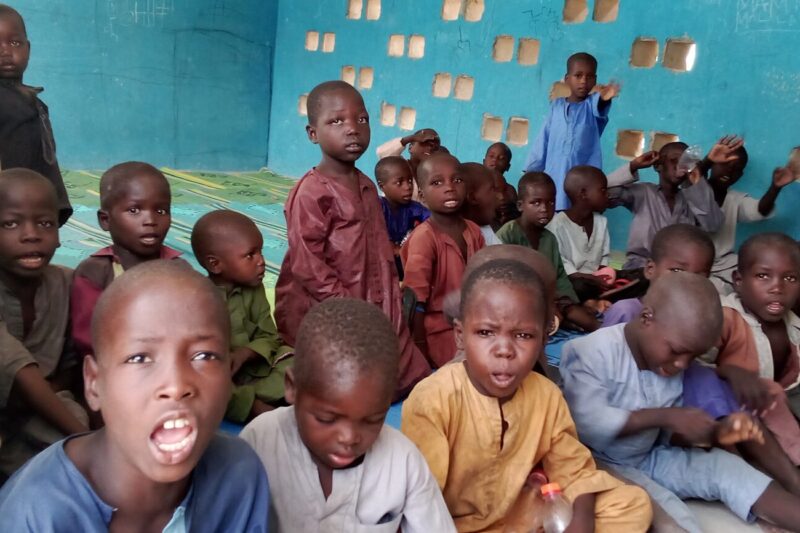The childhood of thousands of girls in Niger is cut short by early marriages.
The Civil Code in Niger sets the minimum age of marriage for girls at 15, placing it among the countries with the highest rate of early marriages in Africa.
The United Nations Children’s Fund (UNICEF) estimates that three in four young girls get married before the age of 18, and that one in four get married before the age of 15, mainly in rural areas and in families with low literacy skills.
In Niger, 76% of girls are married before their 18th birthday and 28% are married before the age of 15.
Child marriage is often driven by poverty and has many effects on the girl’s health, including increased risk for sexually transmitted diseases, cervical cancer, malaria, death during childbirth, and obstetric fistulas. Girls’ offspring are at increased risk for premature birth and death as newborns, infants, or children.
Upholding social and religious traditions and the fear of dishonour from pregnancy outside of marriage are also major drivers.
According to UNICEF, the link between education and the prevalence of child marriage is particularly evident in Niger: 81% of women aged 20 to 24 with no education and 63% with only primary education were married or in union at age 18, compared with only 17% of women with secondary education or higher.
The organisation said married girls and child mothers had limited power to make decisions, were generally less able to earn an income and were vulnerable to multiple health risks, violence, abuse – including gender-based violence – and exploitation.
The World Health Organisation said in a report that girls who married young were more vulnerable to intimate partner violence and sexual abuse. It said child marriage was being recognised as a violation of the rights of girls because:
- It effectively ended their education;
- It blocked any opportunity to gain vocational and life skills;
- It exposed them to the risks of too-early pregnancy, child-bearing and motherhood before they were physically and psychologically ready; and
- It increased their risk of intimate-partner sexual violence and HIV infection.
According to the United Nations Millennium Goals (MDGs), ending child marriage was closely related to the Every Woman Every Child initiative. Numbers 3, 4, and 5 of the goals promote gender equality, the reduction of child mortality and to improve maternal health.
The government, civil society and non-governmental organisations (NGOs) have worked together to put an end to child marriages.
Several training and awareness initiatives and campaigns have been undertaken by the Ministry for the Promotion of Women and the Protection of the Child, with the ministries of justice, health and education, and NGOs.
These include making the public aware of the dangers young girls are exposed to in early marriage, including the health issues and abuse.
Niger’s partners in the fight against early child marriage are UNICEF, UNFPA and the United Nations Development Programme (UNDP). In December 2019 they launched the Spotlight Initiative, a multi-year global partnership, which focuses on eliminating all forms of violence against women and girls, including ending sexual violence and harmful practices that have a negative effect on women’s sexual and reproductive health.
In August 2013 in the regions of Tahoua, Tillabéri, Zinder, Maradi and Niamey, secure spaces were created for adolescent girls, an initiative of the UNFPA. These places allow marginalised people to come together to talk about their lived experience of marginalisation. The programme educates girls aged 10 to 19 about child marriage and the prevention of teenage pregnancy.
A local NGO led by Mariama Moussa, SOS Femmes et Enfants Victimes de Violences Familiales (FEVVF), conducts awareness-raising sessions as part of the prevention of early and forced marriage in 32 villages in the Tillabéri region.
She is quoted as saying: “Despite the signing of the children’s rights convention, there is still discrimination against girls. Religion has never allowed a girl to marry without her consent, but all the cases of early marriage that we receive are cases of forced early marriage or attempted early marriage.”







